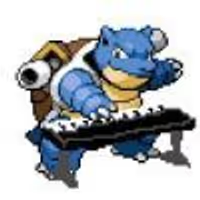Question: what is the term for a song in a book musical that does not advance the plot?
#1Question: what is the term for a song in a book musical that does not advance the plot?
Posted: 12/12/12 at 8:39pm
trying to remember the academic term...for example, if Happy Birthday is sung in a show simply to give background (but not to move plot, expose character, etc)
Anyone know?
Thanks -
#2Question: what is the term for a song in a book musical that does not advance the plot?
Posted: 12/12/12 at 8:42pmThe academic term is BKLYN:The Musical. Don't forget.
#2Question: what is the term for a song in a book musical that does not advance the plot?
Posted: 12/12/12 at 9:11pm
^I was gonna say Frank Wildhorn. (Even though I love him.) ![]()
wonkit
Broadway Legend Joined: 9/30/08
#3Question: what is the term for a song in a book musical that does not advance the plot?
Posted: 12/12/12 at 9:31pm
Placeholder?
Plot killer?
Mamet-song?
#4Question: what is the term for a song in a book musical that does not advance the plot?
Posted: 12/12/12 at 9:33pmA Big Lipped Alligator Moment?
nasty_khakis
Broadway Legend Joined: 3/15/07
#5Question: what is the term for a song in a book musical that does not advance the plot?
Posted: 12/12/12 at 9:40pmAndrew Llyod Webber??
#6Question: what is the term for a song in a book musical that does not advance the plot?
Posted: 12/12/12 at 9:42pm
very funny, especially Blaxx "BRKLYN"
anyway, the term is something like an "exegesis" song...or something like that... any ideas?
#7Question: what is the term for a song in a book musical that does not advance the plot?
Posted: 12/12/12 at 9:59pm
(Deleted because I gave a very detailed answer and then realized it entirely missed the OP's question. Entirely my bad.)
Re "Happy Birthday": I don't know the technical term. I've heard music where the character is actually singing within the world of the play (and not just singing for the benefit of the audience) called "programmatic". But when I looked up that term, I found a discussion of something else entirely.
Updated On: 12/12/12 at 09:59 PM
PositivelyEmerald
Stand-by Joined: 7/24/11
#8Question: what is the term for a song in a book musical that does not advance the plot?
Posted: 12/12/12 at 10:03pmCould it be similar to subordinate clauses in Shakespeare?
#9Question: what is the term for a song in a book musical that does not advance the plot?
Posted: 12/12/12 at 10:06pm
This isn't quite the same thing, but may be what the OP is looking for. In a show when a song is sung and the characters know they are singing (ugh, if that makes sense)--and usually this doesn't really advance the plot, it's a diegetic song.
Examples would be Do-Re-Mi in Sound of Music, Bill and After the Ball (and others) in Show Boat, Bobby and Jack and Good Thing Going in Merrily We Roll Along, Think of Me in Phantom, etc Of course often these songs can, in some way, still comment on action and (more likely) character or theme, especially if handled cleverly, but...
#10Question: what is the term for a song in a book musical that does not advance the plot?
Posted: 12/12/12 at 10:06pm
Thanks GavestonPS, but there is a technical term for a song that is kind of like background music that does not fit those categories...
like when a character is whistling Jingle Bells (because it happens to be Christmas during that scene) or the music being played by a band or on a radio (because it's just there to set the scene for a certain time period) that is in the book musical, but is not OF the songs sung by characters to advance the story...that's the term I know has a name, but can't remember.
#11Question: what is the term for a song in a book musical that does not advance the plot?
Posted: 12/12/12 at 10:11pm
I absolutely believe you, but I haven't heard it and don't know how to look for it. The use of the term "programmatic" that I have heard is the same as Eric's diegetic. I think his term is more precise.
But I realize that though singing "Happy Birthday" may be a diegetic exercise, that still isn't as specific as what you need. Sorry. Sally Bowles singing "Cabaret" is diegetic (or was in the original production), but that's obviously quite different.
#12Question: what is the term for a song in a book musical that does not advance the plot?
Posted: 12/12/12 at 10:13pm
In a musical theatre class I took back in college, my professor would use the term "diegetic" meaning a song occurred as part of the story's action. A song that was "non-diegetic" took place outside the action or outside the established "world" of the story.
EDIT: my bad, someone beat me to it. Apologies!
#13Question: what is the term for a song in a book musical that does not advance the plot?
Posted: 12/12/12 at 10:17pmThanks again GavestonPS and EricMontreal22...I'm guessing that diegetic might be it... I remember now where I would have seen the term. I think it was in the old Lehman Engel book (maybe it was Words with Music?)... I seem to remember there was something like a whole chapter devoted to it...It's been years since I've seen that or the book, LOL.
#14Question: what is the term for a song in a book musical that does not advance the plot?
Posted: 12/12/12 at 10:18pmThanks, Lyls3637!
#15Question: what is the term for a song in a book musical that does not advance the plot?
Posted: 12/13/12 at 12:30am
Now I'm confused LOL. There was a big discussion about this about half a year back on the Sondheim forum--and I'm pretty sure Sally singing Cabaret and someone singing Happy Birthday are both diegetic--albeit they serve slightly different forms.
Actually Cabaret may be a bad example since Hal Prince (and others) have staged it as being partly sung in the "limbo" and not all technically in the Kit Kat Klub. Don't Tell Mama may be a better example...
I thought non-diegetic was a song that advanced the action, etc (to put it more bluntly, it's when people sing but we, more or less, are meant to assume they're either talking, or thinking out loud, etc).
Here's the Sondheim.com discussion--though it goes on a rant (it's about 21 pages...) so you may not be interested.
#16Question: what is the term for a song in a book musical that does not advance the plot?
Posted: 12/13/12 at 12:31am(edit: I guess the thread goes two years back, yet it seems more recent to me...)
#17Question: what is the term for a song in a book musical that does not advance the plot?
Posted: 12/13/12 at 12:33am
One more addition:
The term gets much more vague with a show like Follies. Sondheim himself has said that I'm Still Here works on *both* levels (Carlotta is performing it at the party but, unlike her cut in previews song Can That Boy Foxtrot, it's also meant to reflect directly on her life-- although of course most of the performed, or diegetic songs in Follies reflect at the very least on the themes of the show--Ah Paree and Rain on the Roof maybe being exceptions).
ILuv2shop531
Broadway Star Joined: 7/12/07
#18Question: what is the term for a song in a book musical that does not advance the plot?
Posted: 12/13/12 at 12:46amMood music?
#19Question: what is the term for a song in a book musical that does not advance the plot?
Posted: 12/13/12 at 2:39am
Boring ?
Sorry to digress--but--
This is usually in movies---but when the scene moves into a church--the whatever ceremony and hymns? seem to go on FOREVER and stall whatever plot was going on.
Wilmingtom
Broadway Legend Joined: 7/18/11
#20Question: what is the term for a song in a book musical that does not advance the plot?
Posted: 12/13/12 at 4:45pmPresentational = songs sung to the audience e.g. Cabaret, the Follies songs, Magic to Do, It's a Typical Day in Li'l Abner. I've never heard a specific term for toss-away songs sung in the context of a scene e.g. Happy Birthday.
WOSQ
Broadway Legend Joined: 7/18/03
#21Question: what is the term for a song in a book musical that does not advance the plot?
Posted: 12/13/12 at 4:59pmJustified
#22Question: what is the term for a song in a book musical that does not advance the plot?
Posted: 12/13/12 at 7:20pm
There's also theory in terms of songs being "plot-movers" versus "plot-stoppers."
A "plot-mover" is a song that moves the plot, so that things are at a different point at the end of the song than they were when the song began. A "plot-stopper," arguably the vast majority of theatre songs, pauses the dramatic action to explore a moment, either to enter the nuances of the characters' thoughts and emotions at that moment, or to make a big deal of that particular moment.
Let's look at Sweeney Todd. Plot-movers include "No Place Like London" (introduces all characters), "Poor Thing" (Sweeney learns his wife's tragedy) and "The Contest" (Sweeney wins a bet and earns the wrath of Pirelli). Plot-stoppers include "Green Finch and Linnet Bird" (Joanna's character is explored), "Judge's Johanna" (Judge battles his urges to a standstill), or "Not While I'm Around" (Toby and Lovett both express their mixed emotional attachment and distrust).
That's a more complicated piece, being almost all sung-through. In a show like Hello Dolly, the difference between plot movers and plot stoppers (the title song stopping the plot MASSIVELY for a big production number) is much easier to delineate. Remember: Not all plot stoppers are bad things, nor are all plot-movers automatically good.
#23Question: what is the term for a song in a book musical that does not advance the plot?
Posted: 12/13/12 at 7:22pmIs it "charm song"? Or is that something else?
#24Question: what is the term for a song in a book musical that does not advance the plot?
Posted: 12/13/12 at 7:44pmA "charm song" is something like an "I want" song but not so specific. It's a song that gives you a better feel for a character and their personality, but may not lay out their motivation.
Videos







